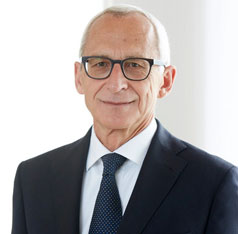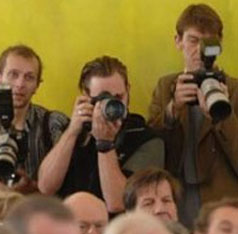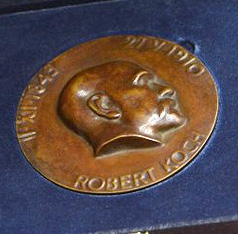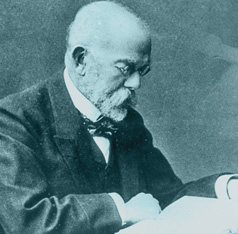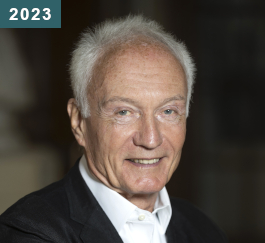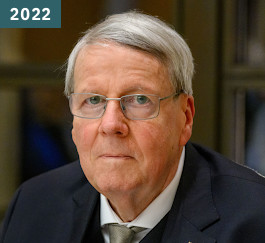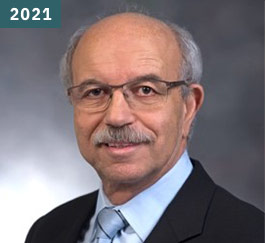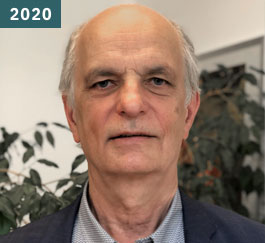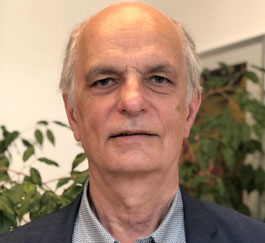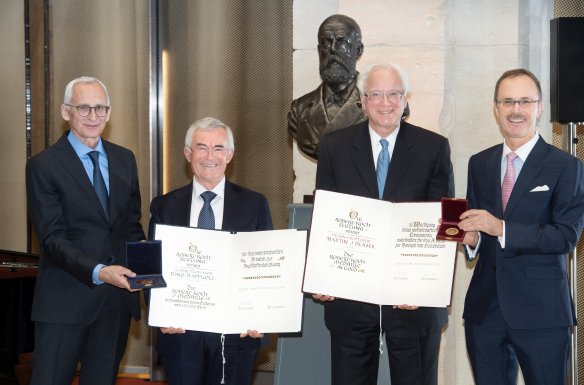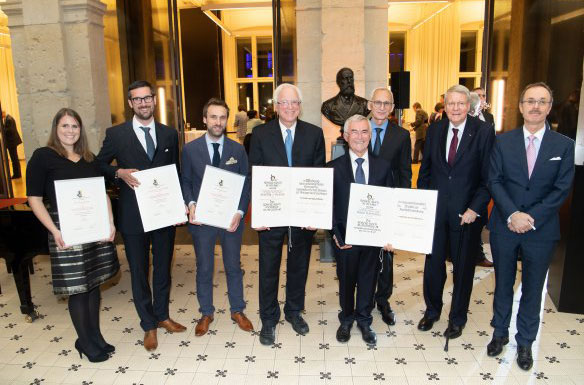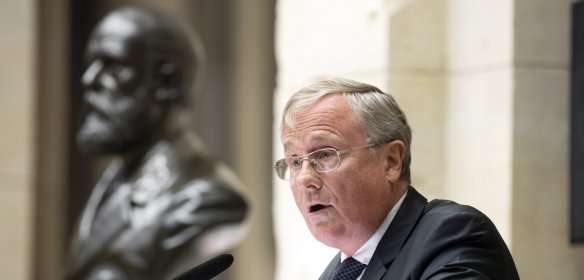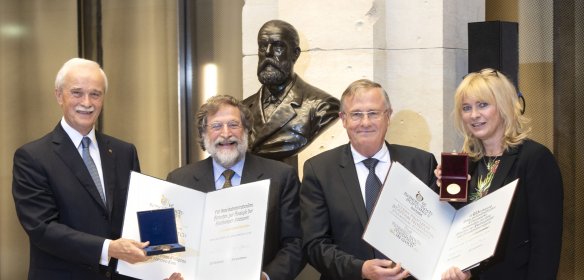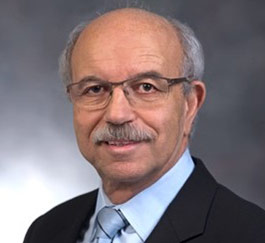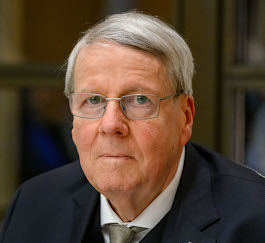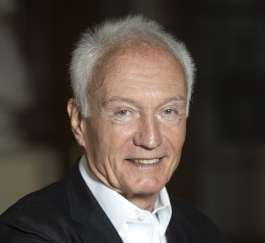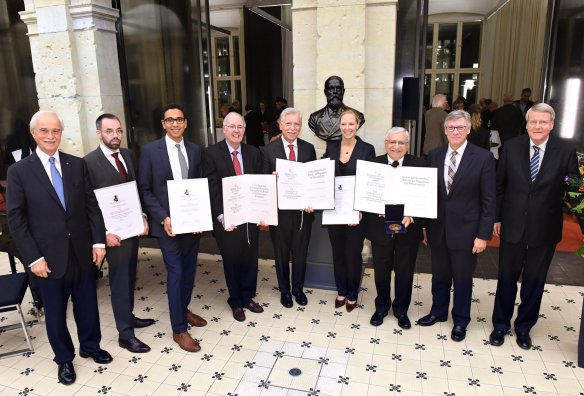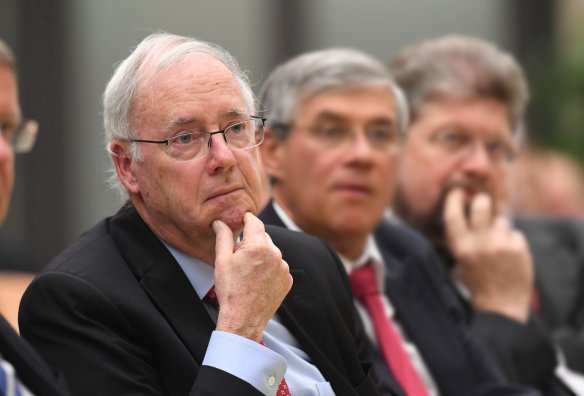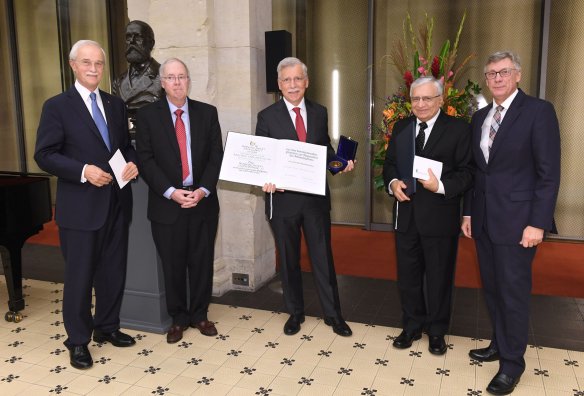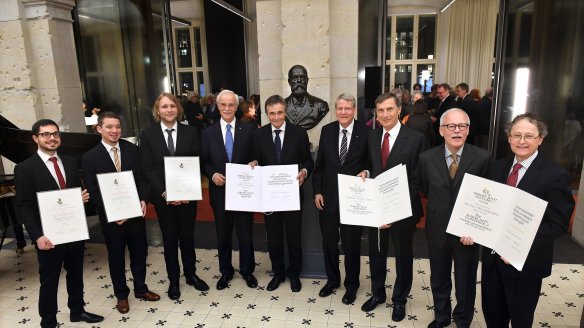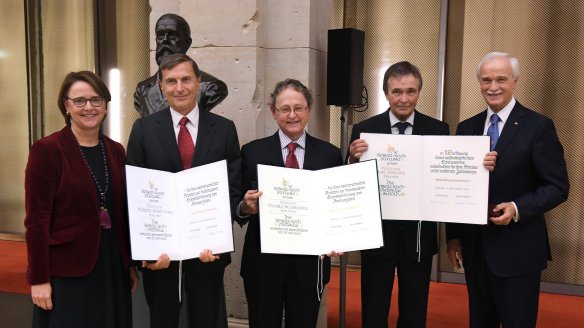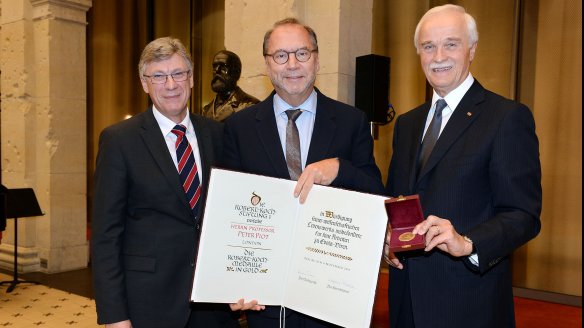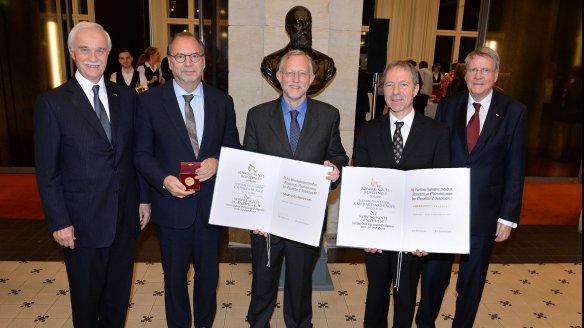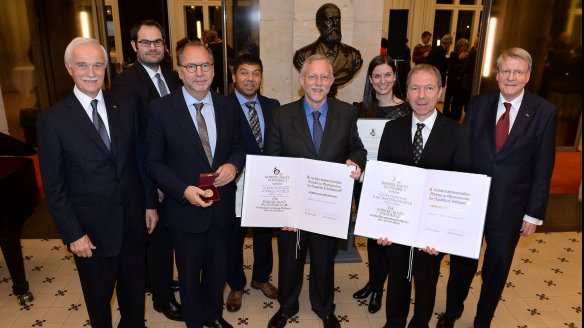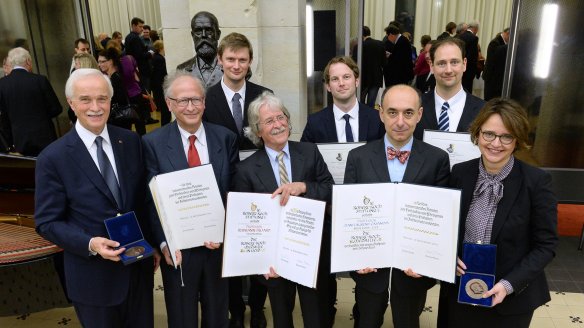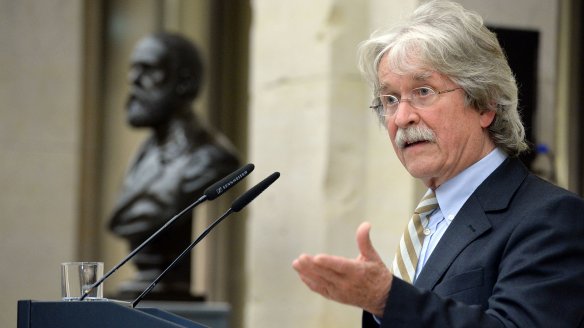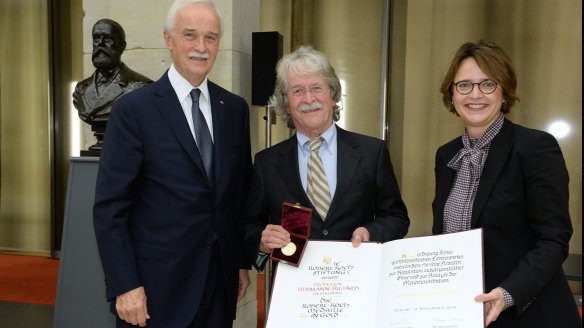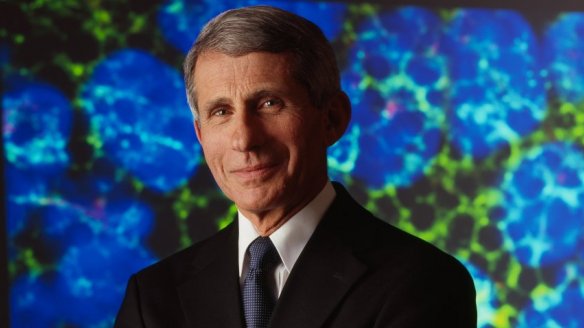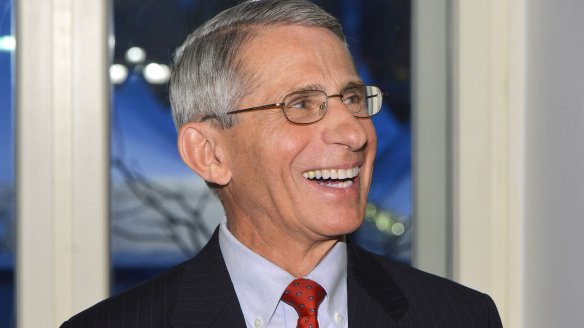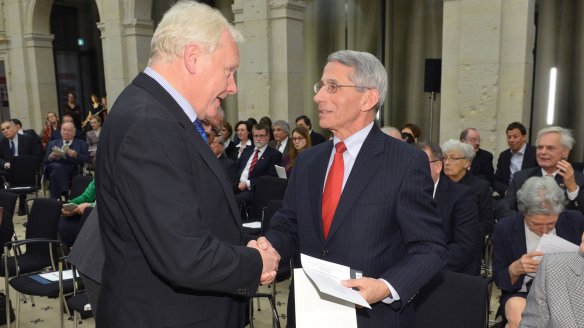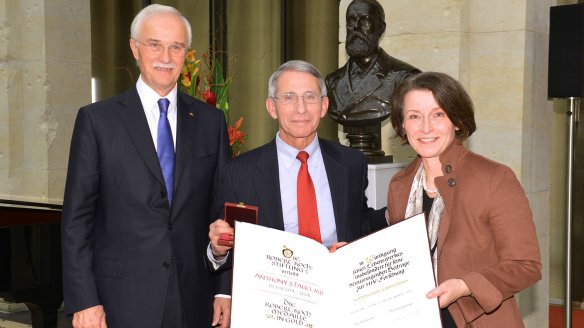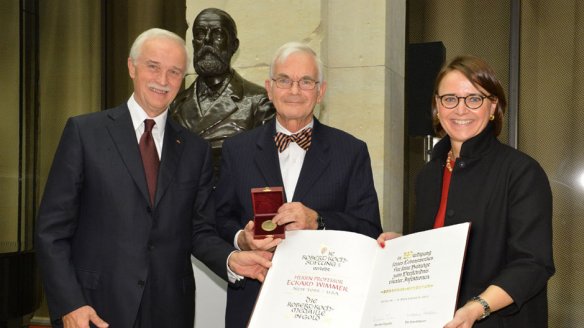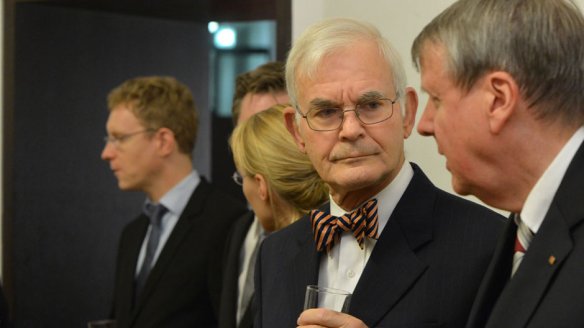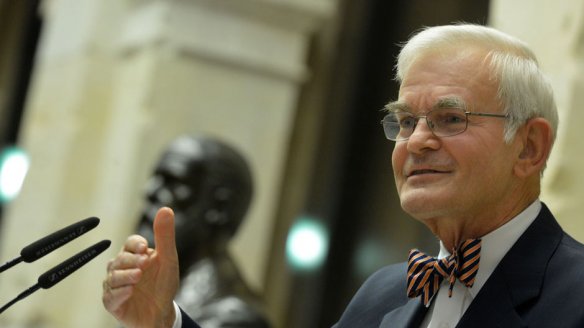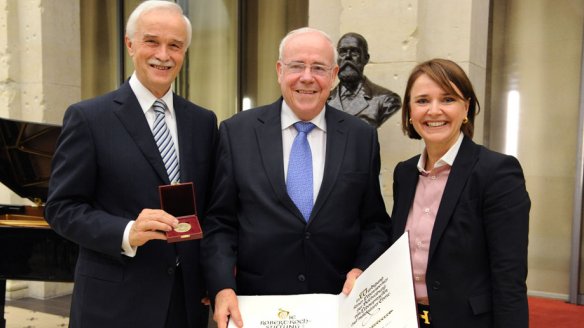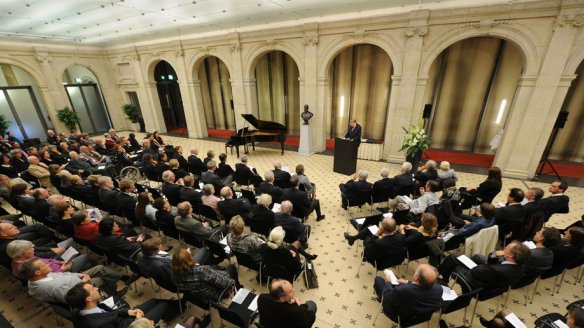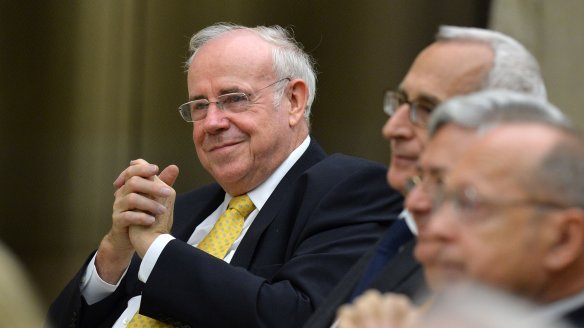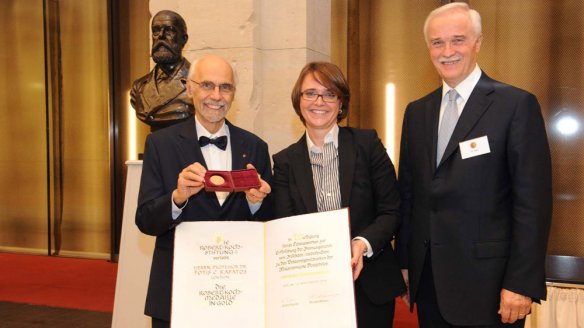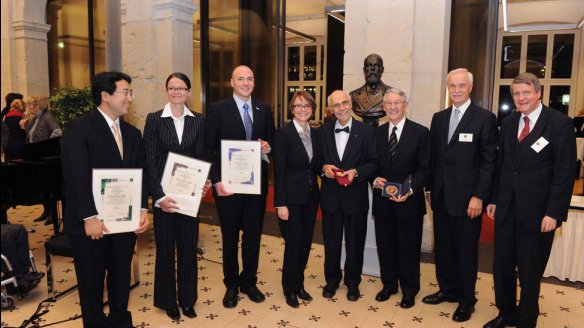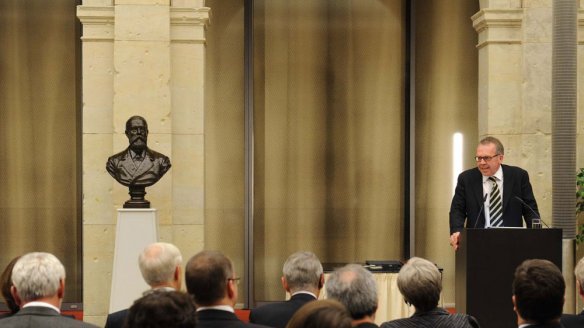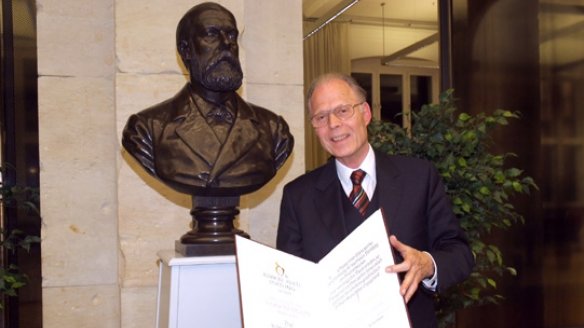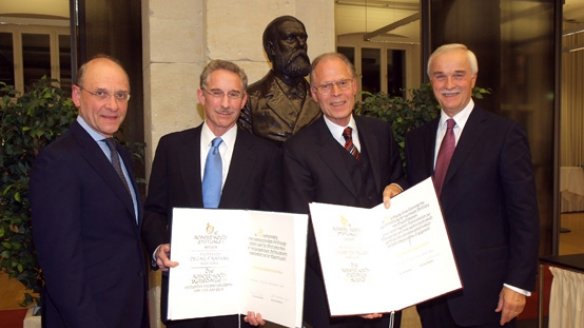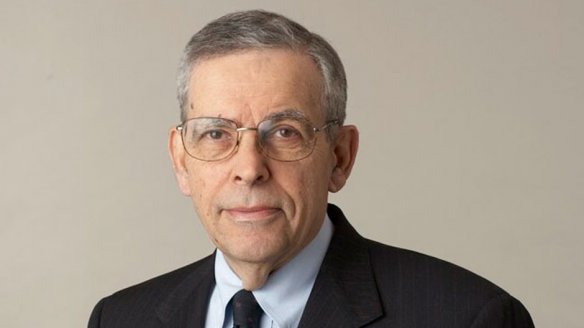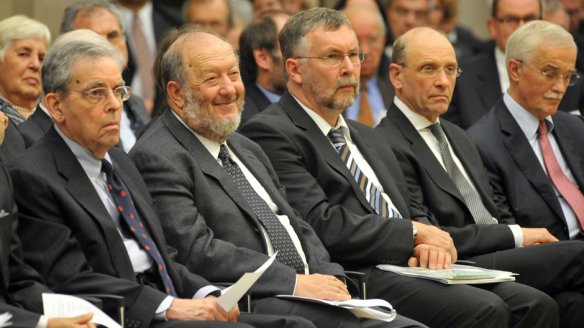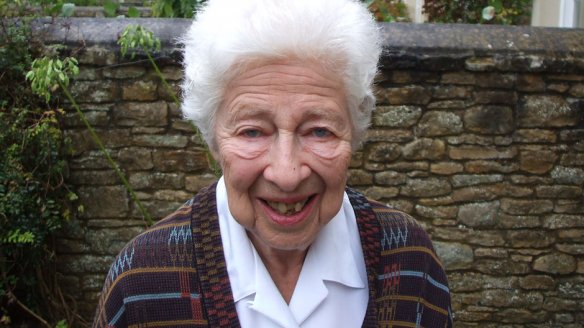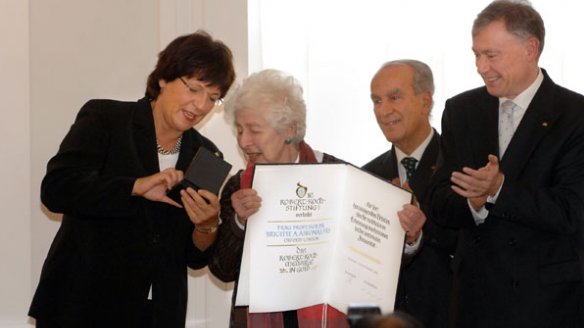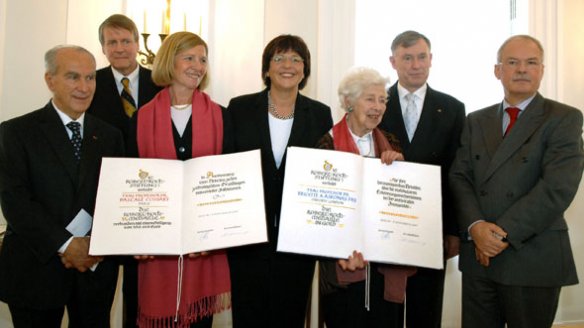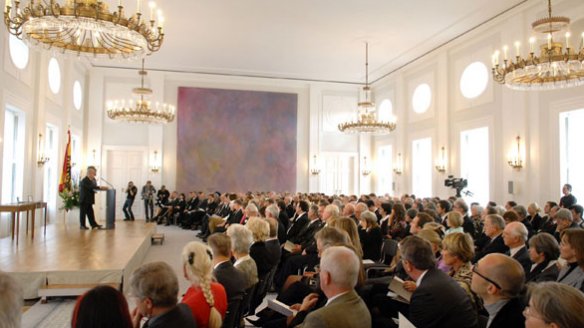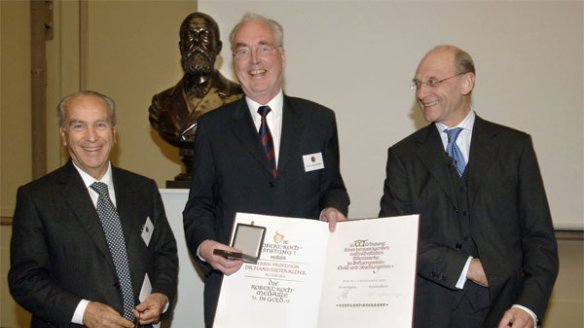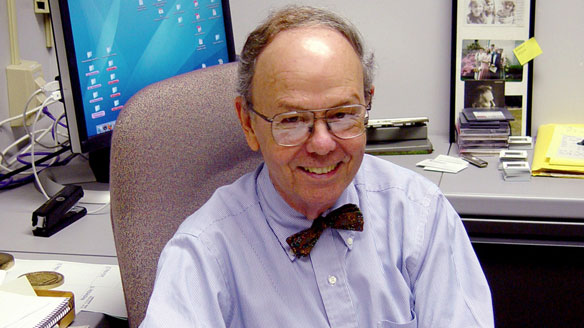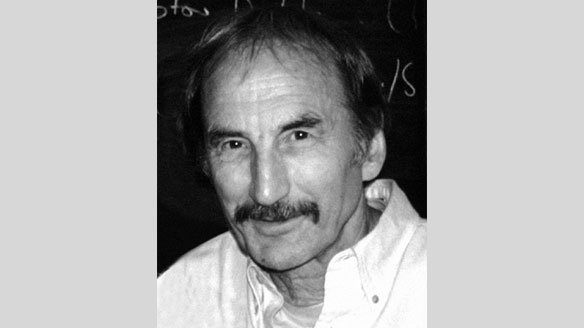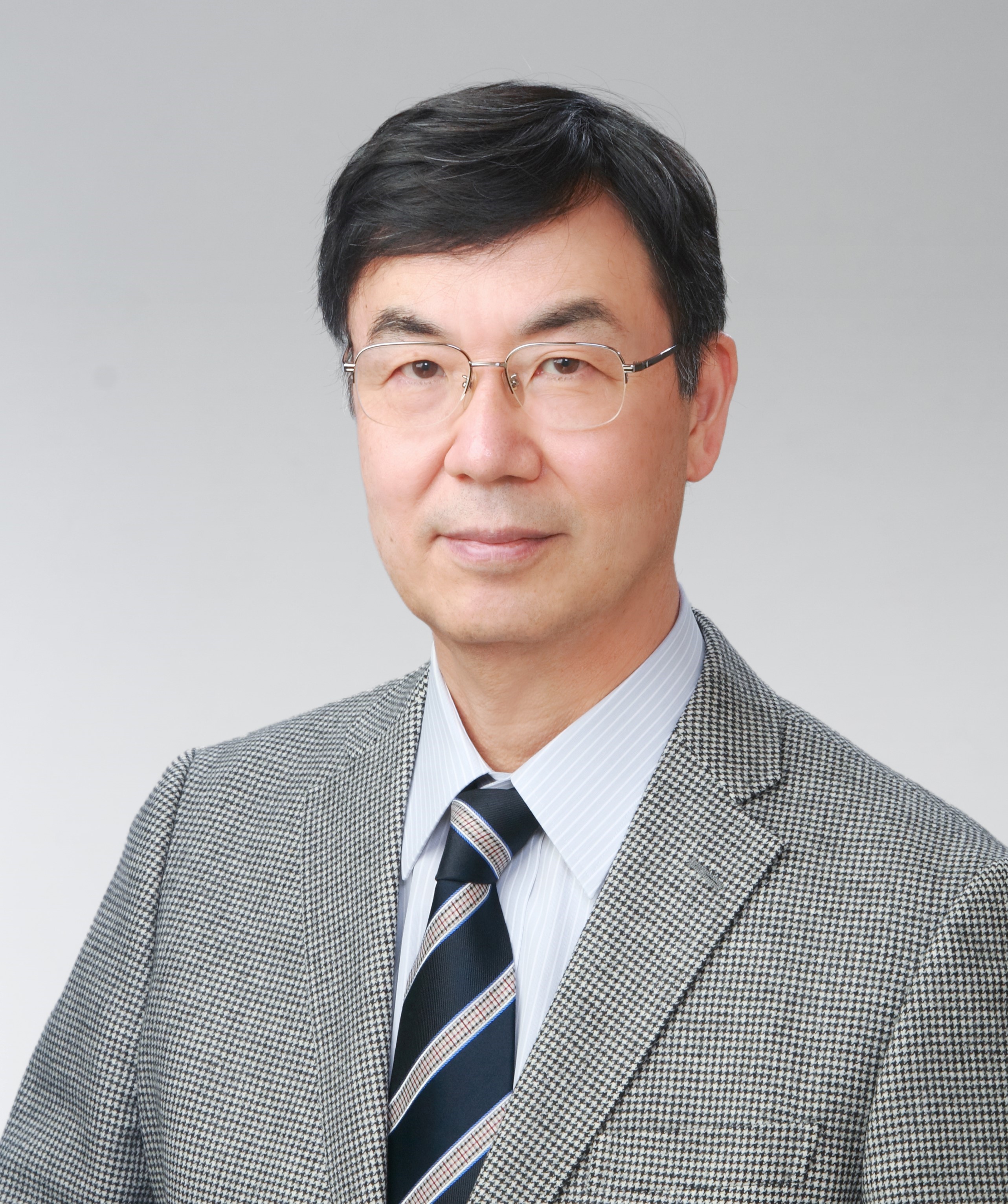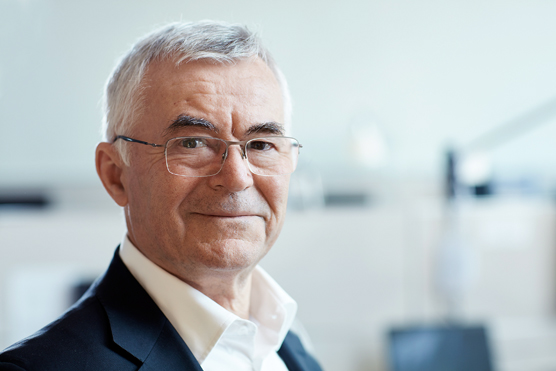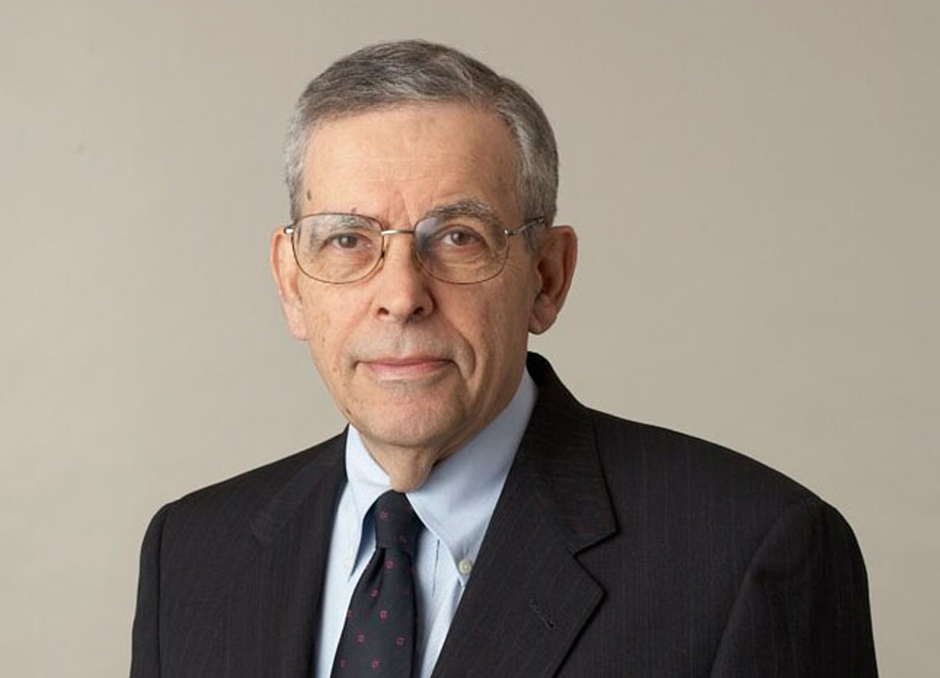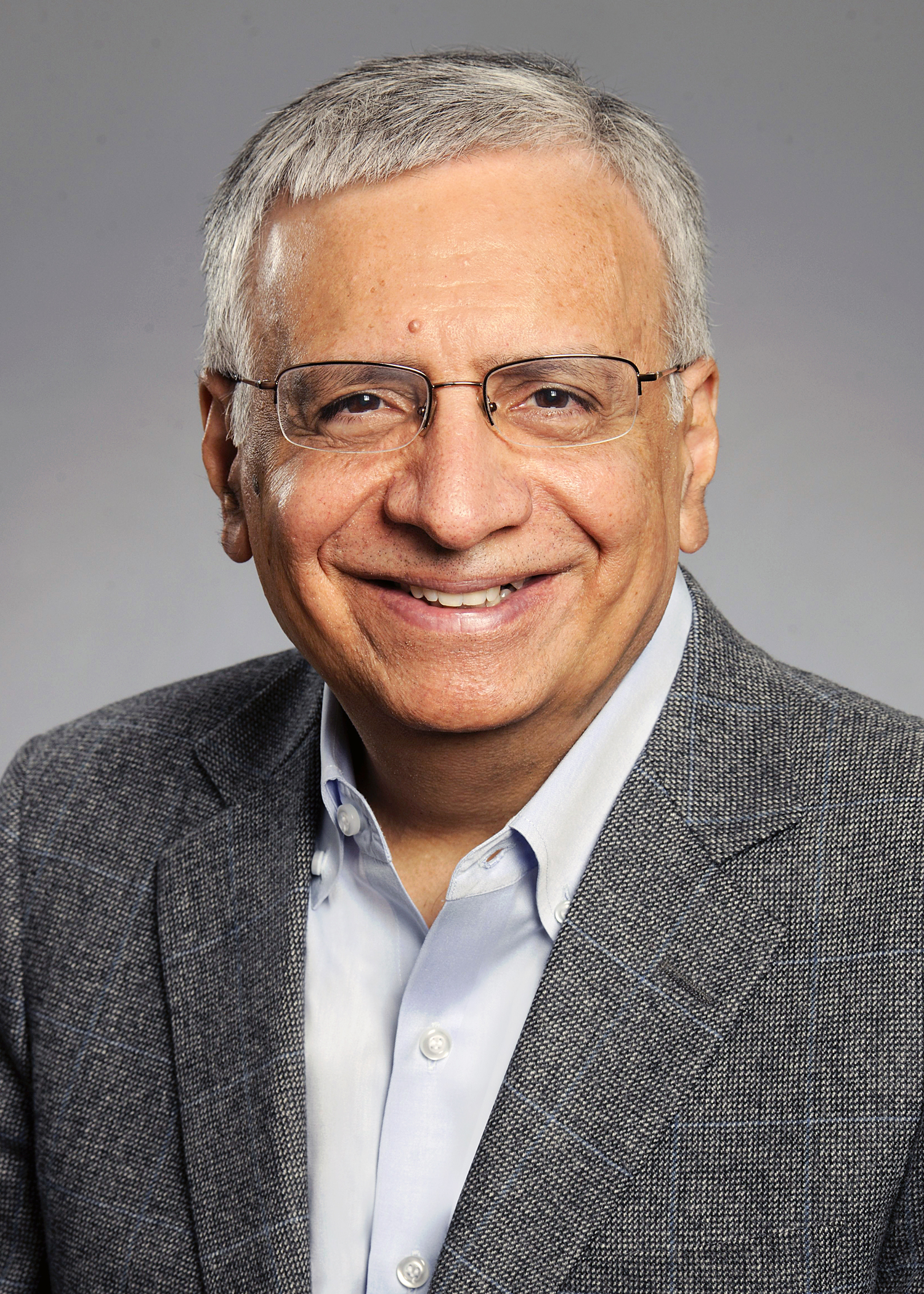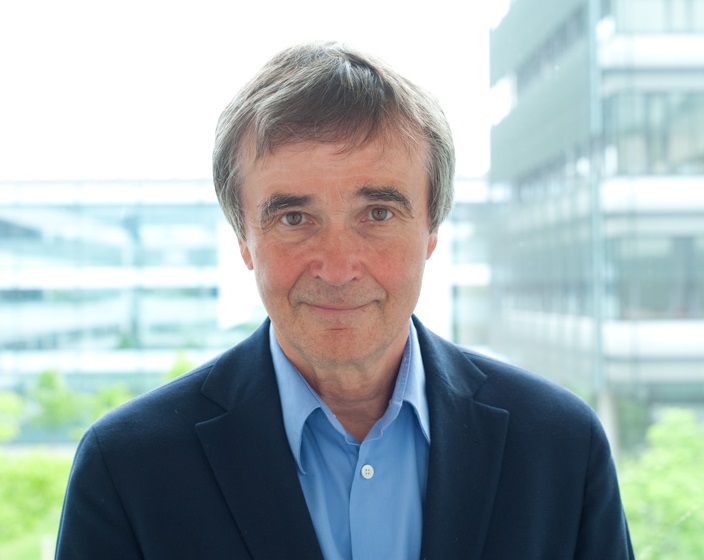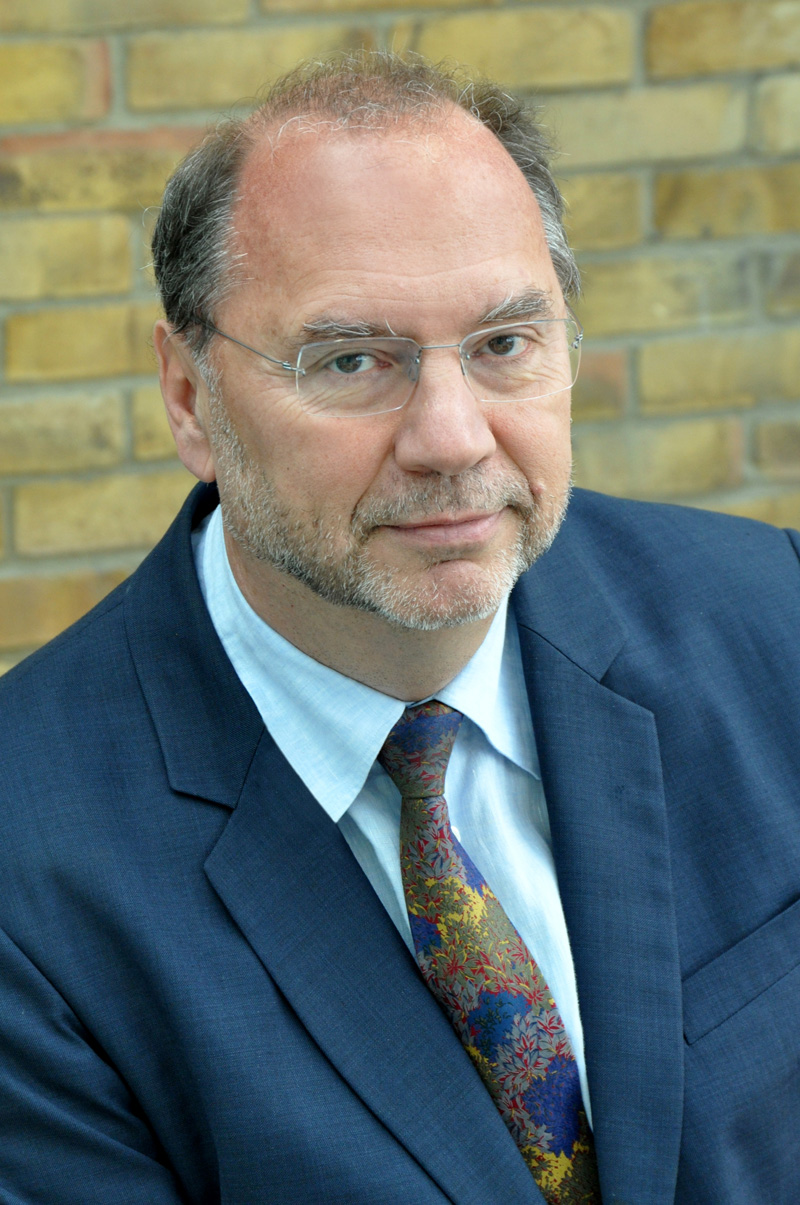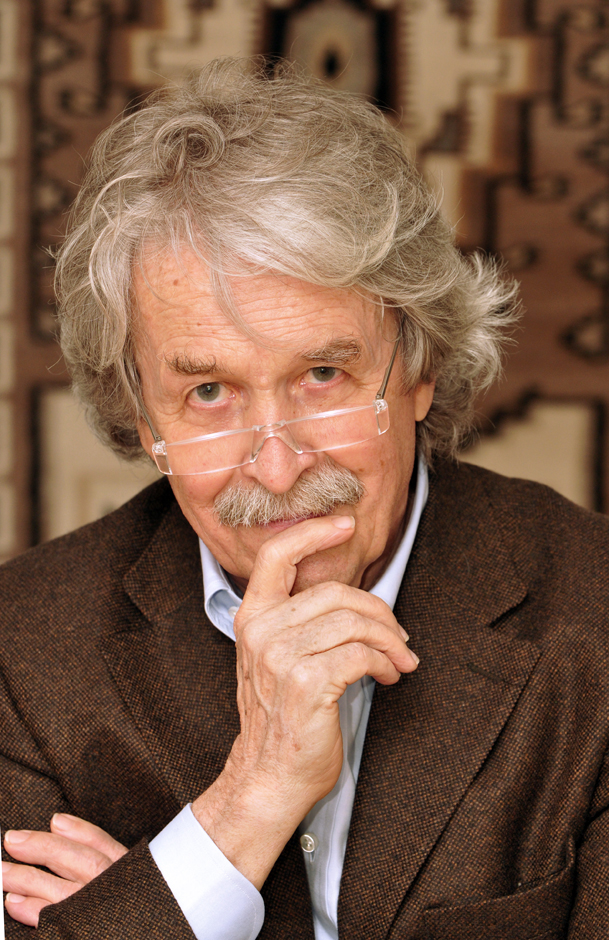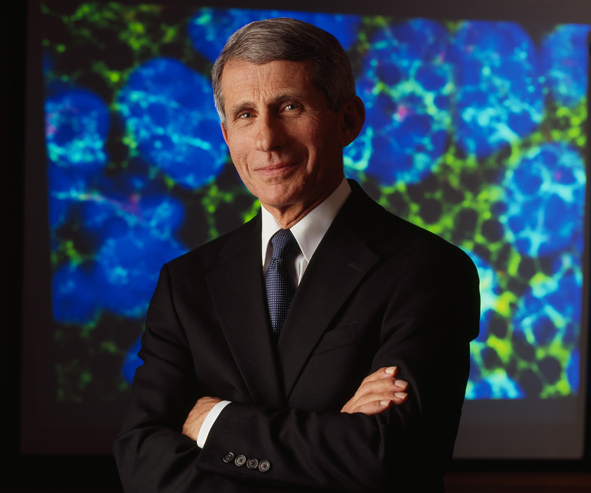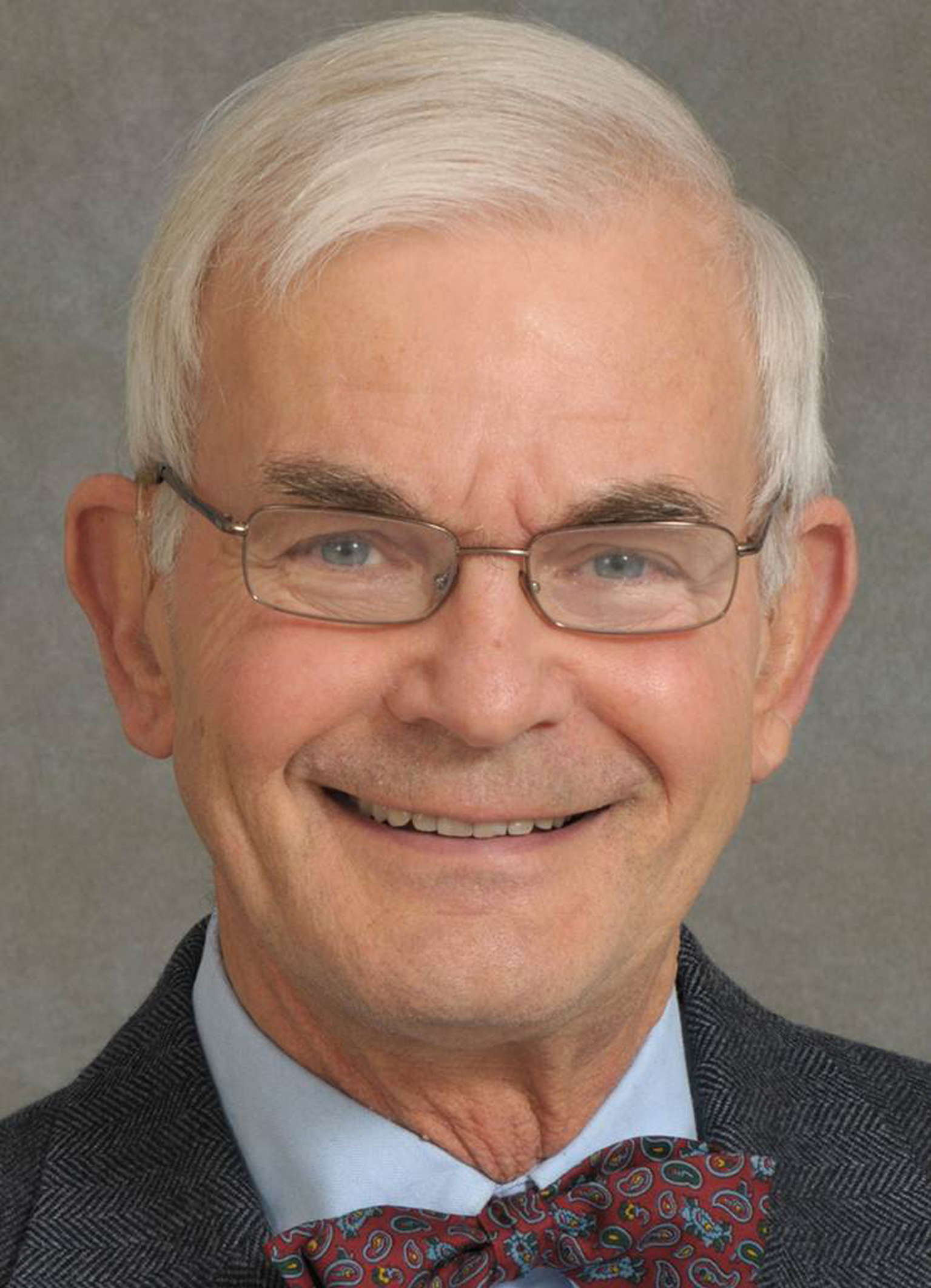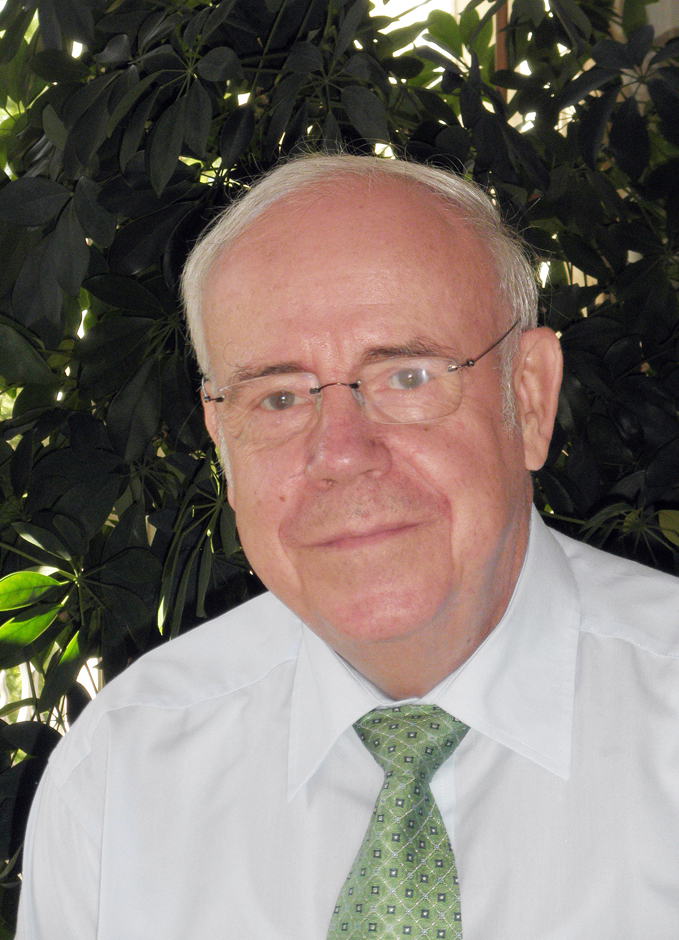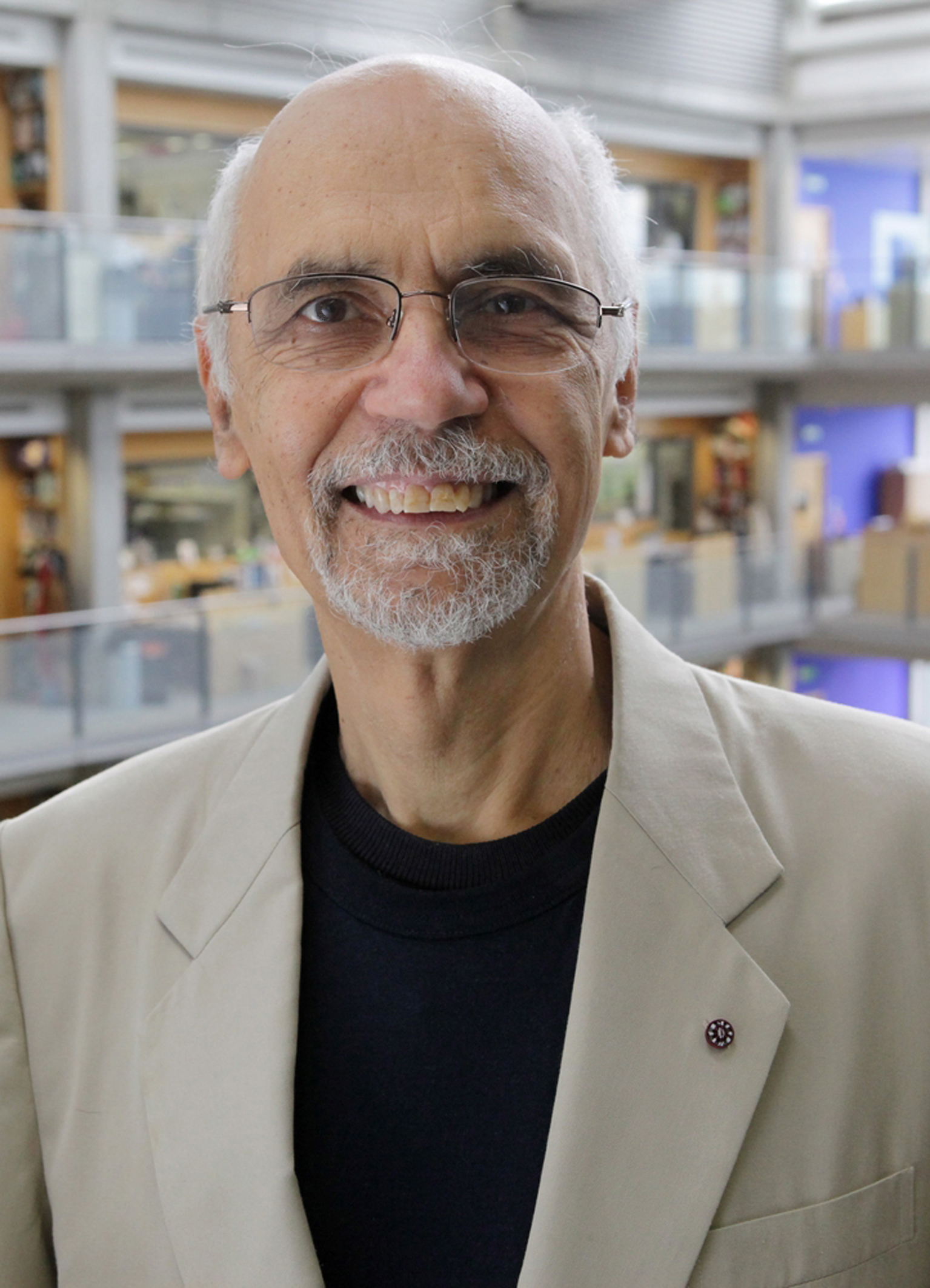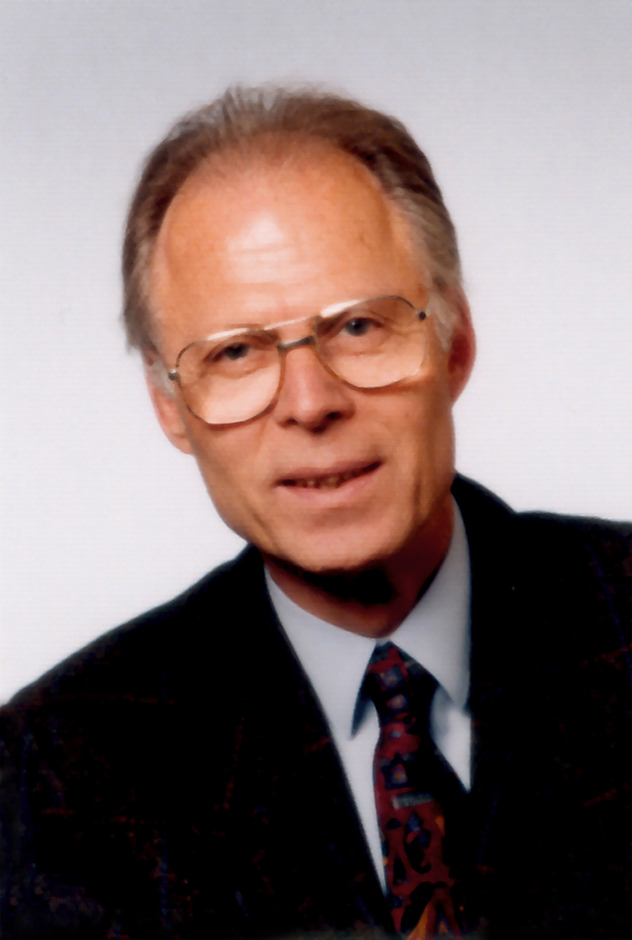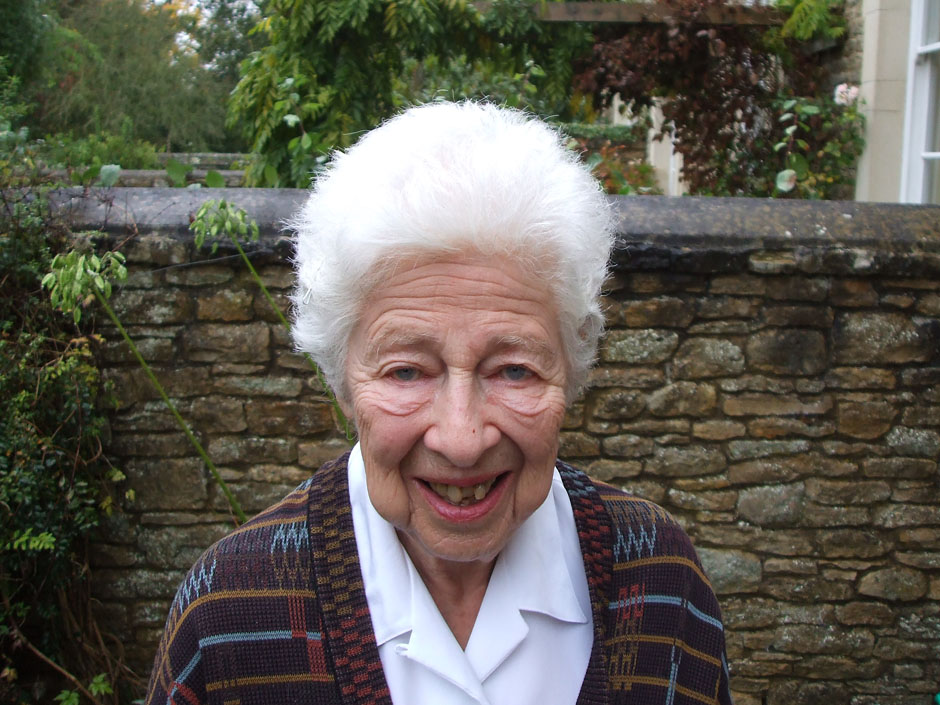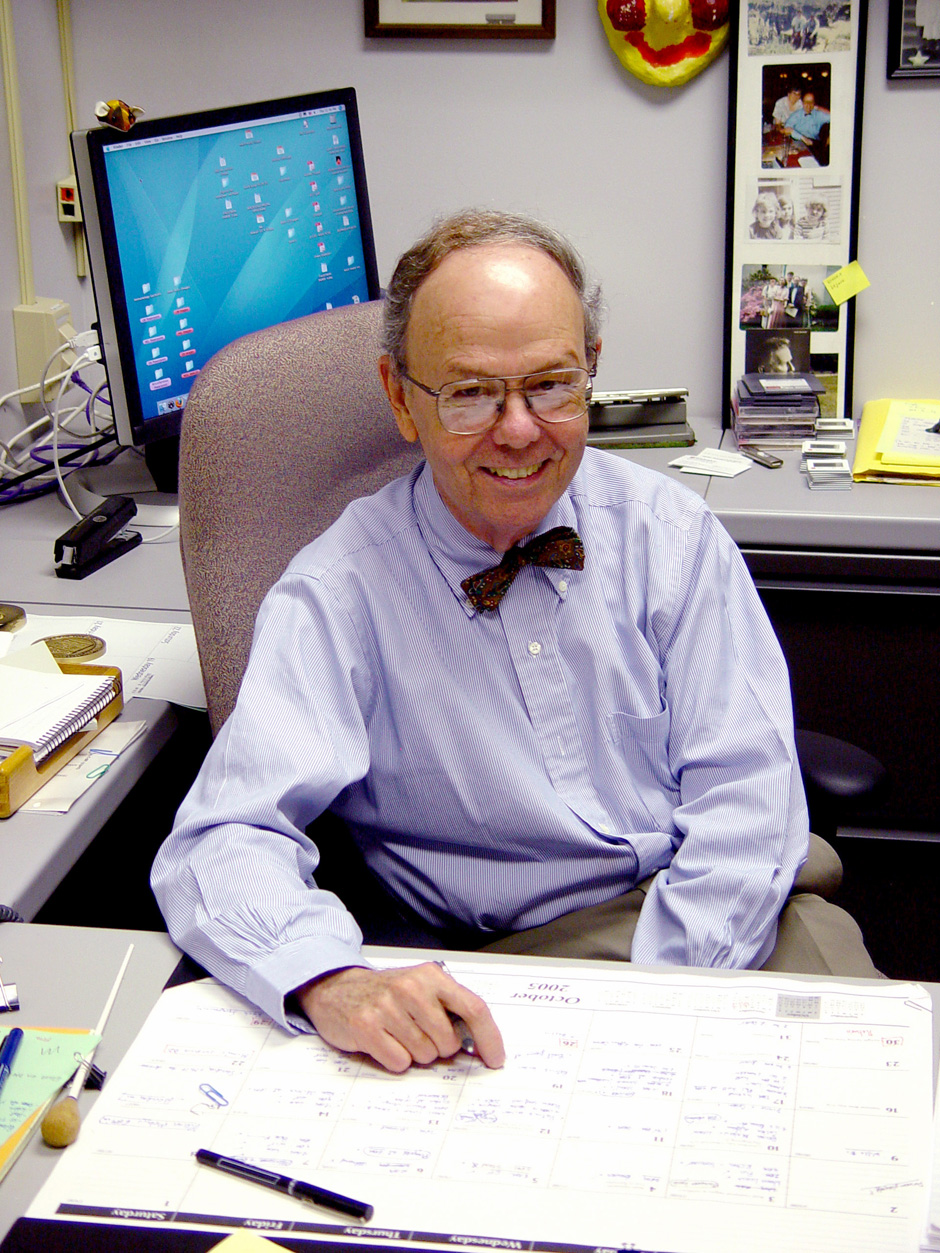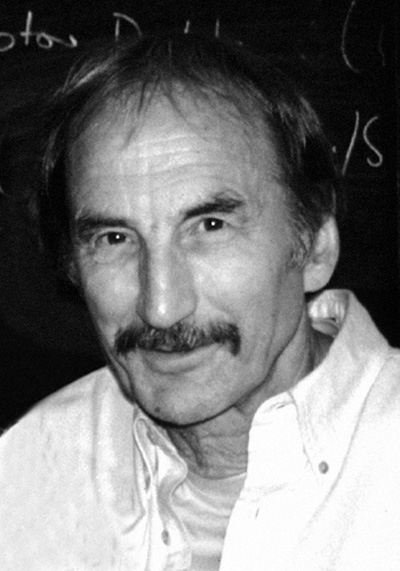Robert Koch Gold Medal
The Foundation annually awards the Robert Koch Gold Medal in recognition of the outstanding life’s work of a scientist.
Robert Koch Gold Medal 2019
Martin J. Blaser (USA)
In 1998, he set up the “Foundation for Bacteria” in order to promote broader studies on the complex role of bacteria. Blaser and his team found the first indications that a colonization of the human stomach with H. pylori can protect against serious diseases of the esophagus, including esophageal cancer. And there were strong indications that it also helped prevent asthma among children.
In his much-quoted essay “What are the consequences of the disappearing human microbiota?”, which he published in 2009 together with the American microbiologist Stanley Falkow, he warned against a fatal “extinction” in the human microbiome that had led to a massive increase in diseases occurring in modern civilization, such as diabetes, asthma, obesity and food allergies. The experiments conducted in his lab showed that early life antibiotic exposures could play causal roles in obesity, juvenile diabetes, and inflammatory bowel disease through a perturbed microbiome. In his book “Missing Microbes: How the Overuse of Antibiotics Is Fueling Our Modern Plague”, Blaser made his work available to a broader readership, now translated into 20 languages.
Robert Koch Gold Medal 2019
Martin J. Blaser always says that the most important thing in life is to follow your inner voice, when young colleagues ask for some parting advice: “Follow your nose, and see where it leads!” Blaser’s life’s work is an impressive example of just how far this attitude can take you.In 1998, he set up the “Foundation for Bacteria” in order to promote broader studies on the complex role of bacteria. Blaser and his team found the first indications that a colonization of the human stomach with H. pylori can protect against serious diseases of the esophagus, including esophageal cancer. And there were strong indications that it also helped prevent asthma among children.
In his much-quoted essay “What are the consequences of the disappearing human microbiota?”, which he published in 2009 together with the American microbiologist Stanley Falkow, he warned against a fatal “extinction” in the human microbiome that had led to a massive increase in diseases occurring in modern civilization, such as diabetes, asthma, obesity and food allergies. The experiments conducted in his lab showed that early life antibiotic exposures could play causal roles in obesity, juvenile diabetes, and inflammatory bowel disease through a perturbed microbiome. In his book “Missing Microbes: How the Overuse of Antibiotics Is Fueling Our Modern Plague”, Blaser made his work available to a broader readership, now translated into 20 languages.
Robert Koch Gold Medal 2018
Staffan Normark (Schweden)
Robert-Koch-Medaille 2018
Wenn Staffan Normark auf den Beginn seiner Karriere zurückblickt, erinnert er sich an eine Zeit, in der vieles einfach „neu und aufregend“ war. Normark gehörte zu den ersten Forschern, die in Schweden ein Gen klonierten. 1980 wurde er im Alter von 35 Jahren jüngster Professor an der Universität seiner Heimatstadt Umea. 1983 gründete er die Firma Symbicom, ein frühes schwedisches Biotechunternehmen, heute eine Tochter der AstraZeneca. Normark hatte ein sicheres Gespür für die ungeheuren Möglichkeiten, die sich mit den neuen molekularbiologischen Werkzeugen eröffneten. Lange beschäftigte er sich mit der Induktion der so genannten AmpC-Beta-Laktamase in Eschericia coli und damit der Entstehung von Antibiotikaresistenzen. Bei den Beta-Laktamasen handelt es sich um bakterielle Enzyme, die in der Lage sind, den „Betalaktam-Ring“ zahlreicher Antibiotika zu spalten und damit zu inaktivieren. Die enzymatische Inaktivierung von Antibiotika durch Beta-Laktamasen gilt heute als der am weitesten verbreitete Resistenzmechanismus.Robert Koch Gold Medal 2017
Christopher T. Walsh is one of the fathers of chemical biology, a new discipline at the intersection of chemistry, biology and medicine. With over 800 publications, Walsh, who specialized in enzymatic responses at an early stage, made a key contribution to deciphering the chemistry of life. His studies on how antibiotics work and the mo-lecular mechanisms of antibiotics resistance were ground-breaking. Even in the early 90s, Walsh succeeded in proving the enterococci only need to change one enzyme from their cell wall (D-Ala-D-Ala ligase) slightly to decrease the effectiveness of the antibiotic Vancomycin thousandfold.
In a personal retrospective of his eventful research career, Walsh recently admitted that the results of his work also had medical consequences, for example when finding new antibiotics or immune modulators, always gave him great satisfaction.* His studies on blocking enzymatic reactions via inhibitors (suicide substrates) or on the production of selective iron-ion binding “siderophores” by enterobacteria were pioneering. Finally, Walsh focused intensively on the general rules of biosynthesis of natural substances, including a wide range of pharmacologically effective substances. In this way, Walsh gave colleagues from a wide range of disciplines the tools they needed for their own work. Even decades later, this outstanding researcher can still marvel at the “breathtakingly simple logic” with which hundreds of thousands of structurally and functionally different molecules are combined from simple chemical basic building blocks. Following Nobel Physics Laureate Frank Wilczek, Walsh calls this the “beauty in the heart of nature”.
Robert Koch Gold Medal 2016
Professor Kai Simons receives the Robert Koch Medal in Gold for his impressive lifetime achievements, which took him from Finland via the USA to Heidelberg and to the Max Planck Institute of Molecular Cell Biology and Genetics in Dresden. He is an expert for cell membranes, those wafer-thin membranes made of a double layer of fat molecules (“lipids”) which surround each cell of the human body. It was long thought that these membranes were only a largely uniform fluid matrix. Thanks to Kai Simons, it has been possible to clearly demonstrate the great dynamic and wide range of functions of lipid membrane systems. He discovered island-like structures in the lipid bilayer of cell membranes, which reminded him of the log rafts of Finnish lumberjacks drifting downstream – hence the name “lipid rafts”. However, in fact these nanodomains are dynamic. They fluctuate in size and can be clustered to form liquid platforms that play a significant role in signal transduction and many other membrane processes.
The lipid raft model is linked to new therapy approaches, for example in neurological diseases such as Alzheimer’s, in which malfunctions in lipid rafts play a role. Kai Simons also found clear evidence that many viruses – including influenza, Ebola, measles and HI viruses – use lipid rafts to invade their host cells or to leave them again, by encasing themselves with rafts from the cell membrane.
Robert Koch Gold Medal 2015
The fight against infectious diseases characterizes the life’s work of Professor Peter Piot, Director of the London School of Hygiene & Tropical Medicine, London, UK. In 1976, Piot co-discovered the Ebola virus in Zaire.
Furthermore, his numerous international activities led among others to understanding about the heterosexual spread of HIV and to the investigation and implementation of preventive strategies against AIDS in African countries. Piot has also been engaged in negotiating substantial price reductions for antiretroviral drugs, which has resulted in the establishment of HIV prevention programs in developing countries.
Robert Koch Gold Medal 2014
Emeritus Professor Hermann Bujard from the Centre for Molecular Biology at Heidelberg University is being awarded the Robert Koch Gold Medal 2014 for his life’s work, in particular for his research on malaria infections.
Research into mechanism which control the activity of genes as well as their practical implementation for combating infectious diseases form the main research areas of Emeritus Professor Hermann Bujard from the Centre for Molecular Biology at Heidelberg University, who is being honored with the Robert Koch Gold Medal for his life’s work. As head of biological research at Hoffmann-La Roche, he already developed a preliminary research program for developing a vaccine against malaria back in 1983. At the end of 1985, Bujard became the founding director of the world-renowned Centre for Molecular Biology (ZMBH) in Heidelberg.
There, in collaboration with West African colleagues, Bujard continues his research into a malaria vaccine, which will shortly undergo clinical testing. The “gene switches” developed in the Bujard laboratory have found wide application in biomedical research, in the development of new drugs against AIDS and hepatitis B, as well as novel strategies to combat insect-borne infectious diseases, such as dengue fever currently proliferating worldwide.
There, in collaboration with West African colleagues, Bujard continues his research into a malaria vaccine, which will shortly undergo clinical testing. The “gene switches” developed in the Bujard laboratory have found wide application in biomedical research, in the development of new drugs against AIDS and hepatitis B, as well as novel strategies to combat insect-borne infectious diseases, such as dengue fever currently proliferating worldwide.
Robert Koch Gold Medal 2013
Professor Fauci was awarded the Robert Koch Gold Medal for his life’s work in the field of HIV research. When, at the beginning of the 1980s, a mysterious disease became the center of public concern, the immunologist, together with his colleagues, set off in search of the infection’s pathogenesis. With the identification of the molecular and cellular mechanisms of infected cells, Fauci was one of the first to describe immune regulation in the infection with HIV. The understanding of how the helper cells (CD4+ T-cells) of people infected with HIV are destroyed, formed the basis of antiretroviral therapy, knowledge that today means that patients have a significantly increased life expectancy.
Fauci not only excelled through his research work, but also through initiatives such as the promotion of the U.S. President’s Emergency Plan for AIDS Relief (PEPFAR), which benefited millions of infected people, especially on the African continent. Fauci was also primarily responsible for devising a number of other programs to combat malaria, tuberculosis and influenza.
Robert Koch Gold Medal 2016
The Robert Koch Gold Medal was presented to Professor Eckard Wimmer from the State University of New York, Stony Brook, USA.
In recognition of his life’s work, Eckard Wimmer was awarded the Robert Koch Gold Medal. He completed his doctorate of natural sciences in organic chemistry at the University of Göttingen in 1962. As a chemist, Wimmer was fascinated by the special characteristics of viruses as both living beings and non-living compounds of organic macromolecules. In 44 years of research into the polio virus, the pathogen which causes infantile paralysis, he published findings which are considered pioneering.
In recognition of his life’s work, Eckard Wimmer was awarded the Robert Koch Gold Medal. He completed his doctorate of natural sciences in organic chemistry at the University of Göttingen in 1962. As a chemist, Wimmer was fascinated by the special characteristics of viruses as both living beings and non-living compounds of organic macromolecules. In 44 years of research into the polio virus, the pathogen which causes infantile paralysis, he published findings which are considered pioneering.
In particular, his achievements include sequencing the genome and explaining the gene structure of the polio virus, discovering a new method of protein translation, the first cell-free synthesis of a virus in an extract of non-infected cells and the first de novo synthesis of an organism (polio virus) without the use of a natural matrix.
The latter work led to the development of new strategies in producing viral vaccines based on computer-designed genomes with hundreds of mutations, and are currently undergoing trials, not only for the polio virus, but also for other human pathogenic viruses. Wimmer’s work played a crucial role in our understanding of the interaction between the virus and its host, and also provided essential information for strategies in combating viruses. If nothing else, he can be considered to have paved the way for the new discipline of synthetic biology.
The latter work led to the development of new strategies in producing viral vaccines based on computer-designed genomes with hundreds of mutations, and are currently undergoing trials, not only for the polio virus, but also for other human pathogenic viruses. Wimmer’s work played a crucial role in our understanding of the interaction between the virus and its host, and also provided essential information for strategies in combating viruses. If nothing else, he can be considered to have paved the way for the new discipline of synthetic biology.
Robert Koch Gold Medal 2011
The Robert Koch Gold Medal has been awarded to the biochemist Professor Ernst-Ludwig Winnacker, currently Strasbourg, France.
The Medal in Gold for his life’s work was awarded to Professor Winnacker, the current General Secretary of the International Human Frontier Science Program Organization (HFSPO) in Strasbourg, France. Winnacker has contributed significantly to the description of life processes at molecular level and therefore to the development of molecular biology and genetic engineering.
The Medal in Gold for his life’s work was awarded to Professor Winnacker, the current General Secretary of the International Human Frontier Science Program Organization (HFSPO) in Strasbourg, France. Winnacker has contributed significantly to the description of life processes at molecular level and therefore to the development of molecular biology and genetic engineering.
As a result of his many years as a member of numerous different research associations and committees, he has had a significant bearing on international research in the field of life science research, as well as on policy-making in this field. His position also allowed him to provide invaluable impulses to the sustainable development of the German and European scientific system.
Born in the German city of Frankfurt/Main, the former long-standing president of the German Research Foundation (DFG) was able to make best use of his role to render outstanding services to the promotion of young scientists. Winnacker was also one of the initiators of the Excellence Initiative, which has had a tremendous impact on the German academic landscape in recent years, as well as being a strong advocate of ‘science without borders’ and overcoming national egoism.
Born in the German city of Frankfurt/Main, the former long-standing president of the German Research Foundation (DFG) was able to make best use of his role to render outstanding services to the promotion of young scientists. Winnacker was also one of the initiators of the Excellence Initiative, which has had a tremendous impact on the German academic landscape in recent years, as well as being a strong advocate of ‘science without borders’ and overcoming national egoism.
Robert Koch Gold Medal 2010
Professor Dr. Fotis C. Kafatos, London, Great Britain, was awarded the Robert Koch Gold Medal.
In recognition of his life’s work in researching insect immunogenomics, Professor Kafatos of the Chair of Genomics and Immunoregulation at Imperial College in London was awarded the Robert Koch Gold Medal. The scientist was also President of the European Research Council from 2007 to 2010.
In recognition of his life’s work in researching insect immunogenomics, Professor Kafatos of the Chair of Genomics and Immunoregulation at Imperial College in London was awarded the Robert Koch Gold Medal. The scientist was also President of the European Research Council from 2007 to 2010.
By discovering many genes, his research contributed to a better understanding of the immune system of the anopheles species of malaria mosquito. When the mosquito absorbs the plasmodium parasite, which causes malaria, by consuming human blood, the parasite can multiply by deactivating certain genes in the insect, while no multiplication occurs if other genes are deactivated. The objectives of the research include using genetic or chemical processes to deactivate the genes which promote multiplication of the parasites, thus preventing the transmission of malaria.
Robert Koch Gold Medal 2009
This year’s Robert Koch Gold Medal goes to Professor Volker ter Meulen. Professor Volker ter Meulen of Würzburg University has been awarded the Robert Koch Gold Medal for his life’s work in investigating the neuronal persistence of viral infections. The virologist is one of the leading researchers in the field of viral infections of the central nervous system. These include diseases such as subacute sclerosing panencephalitis and infections caused by coronaviruses and simian immunodeficiency viruses.
Through his work, Professor ter Meulen was able to show that measles viruses switch off the body’s immune defenses with glycoproteins which inhibit the formation of lymphocytes. This was a pioneering discovery because it revealed a new principle by which the immune system can be suppressed.
Following his career in university research, Professor ter Meulen became president of the renowned Leopoldina in Halle, Germany. Prior to the G8 Summit in Germany in 2007, he invited his counterparts from the participating nations and emerging economies to issue a joint declaration on climate protection. His commitment was rewarded when the Leopoldina was nominatet as Germany’s National Academy of Sciences in 2008.
Following his career in university research, Professor ter Meulen became president of the renowned Leopoldina in Halle, Germany. Prior to the G8 Summit in Germany in 2007, he invited his counterparts from the participating nations and emerging economies to issue a joint declaration on climate protection. His commitment was rewarded when the Leopoldina was nominatet as Germany’s National Academy of Sciences in 2008.
Robert Koch Gold Medal 2008
The Robert Koch Gold Medal 2008 was awarded to Professor Philip Leder.
Professor Philip Leder, of the Department of Genetics at Harvard Medical School in Boston, USA, received the Robert Koch Gold Medal for his fundamental scientific contributions to modern molecular biomedicine. His name was linked with the deciphering of the genetic code in the early 1960s.
Professor Philip Leder, of the Department of Genetics at Harvard Medical School in Boston, USA, received the Robert Koch Gold Medal for his fundamental scientific contributions to modern molecular biomedicine. His name was linked with the deciphering of the genetic code in the early 1960s.
In particular, he has made a crucial contribution to modern molecular tumor research. This included the development of the first transgenic mouse to carry a human oncogene in 1984. The OncoMouse, which spontaneously develops breast tumors, constituted a pioneering feat for molecular cancer research and the search for potentially new medicines. In the last few years, Professor Leder has turned his attention to the correlation between oxygen supply and carbohydrate metabolism in tumor cells, which is essential for the growth of cancer cells. This, too, could be used therapeutically in the future.
Robert Koch Gold Medal 2006
Clausthal-Zellerfeld Prize 1981
Robert Koch Gold Medal 2004
The Robert Koch Gold Medal was awarded to Professor Heinz Schaller, Emeritus Professor of Molecular Biology and Microbiology at Heidelberg University’s Center for Molecular Biology, in recognition of his life’s work, in particular his outstanding pioneering scientific work in the field of the molecular bases of hepatitis B virus infection.
The first genetically engineered hepatitis B vaccine has been developed in co-operation with other research groups and with biotechnology companies. It also offers effective prophylaxis against hepatocellular carcinoma, a widespread global disease.
More Laureates
| 2003 Tadamitsu Kishimoto (Japan) |
| 2002 Agnes Ullmann (Frankreich) |
| 2001 Nicholas Avrion Mitchison (Großbritannien) |
| 2000 Marco Baggiolini (Schweiz) |
| 1999 Barry R. Bloom (USA) |
| 1998 George Klein (Schweden) |
| 1997 Satoshi Omura (Japan) |
| 1996 Sir Gustav V. J. Nossal (Australien) |
| 1995 Charles Weissmann (Schweiz) |
| 1994 Paul Klein (Mainz) |
| 1993 Karl Lennert (Kiel), Otto Westphal (Schweiz) |
| 1992 Piet Borst (Niederlande), Howard C. Goodman (USA) |
| 1991 Werner Schäfer (Tübingen) |
| 1990 Ernst L. Wynder (USA) |
| 1989 Maurice R. Hilleman (USA) |
| 1988 Willy Burgdorfer (USA) |
| 1987 Hans J. Müller-Eberhard (USA) |
| 1986 Ernst Ruska (Berlin) |
| 1985 Richard M. Krause (USA) |
| 1982 Edgar Lederer (Frankreich), Walter Pagel (Großbritannien), Karel Styblo (Niederlande) |
| 1981 Maclyn McCarty |
| 1980 Emmy Klieneberger-Nobel (Großbritannien) |
| 1979 Sir Christopher Andrewes (Großbritannien) |
| 1978 Theodor v. Brand (Sulzbach-Rosenberg), Saul Krugman (USA) |
| 1977 Pierre Grabar (Frankreich) |
| 1974 Paul Kallós (Schweden) |

